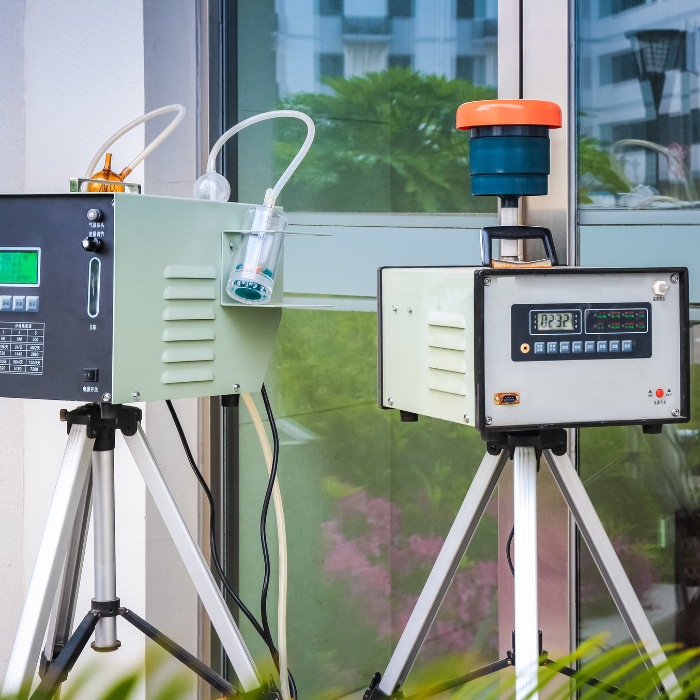
How to embed trust in smart cities with public sensors
08 August 2025
by Eurocities
As cities deploy more sensors in public spaces to improve services and urban management, questions about ethics, governance and trust come to the forefront. The Eurocities Digital Forum Lab provides a collaborative space for cities to tackle these challenges together and shape the future of responsible digital transformation.
Its work in 2025 focused on three key areas: digital twins, ethics and innovation, and the use of public sensors. Through these workstreams, the Lab offers cities concrete tools and strategies to embed public values in their digital policies and ensure technology serves people and places.
There is a need to explain to citizens where sensors are in the city, what they do, and who owns them,” says Mieke van Schaik, Strategic CIO Advisor in Eindhoven. “Ethics in technology must be seen as a foundation, not an afterthought.”
Supporting cities to deploy sensors responsibly
Public sensors, used to measure traffic flows, monitor air quality, or optimise public lighting, are becoming essential tools in modern urban management. Yet, their use also raises complex ethical, legal, and social questions. The Digital Forum Lab has helped cities reflect on how to use these technologies transparently and responsibly.
A key insight is the need for a clear purpose before deploying any sensor. Cities are encouraged to ask: Why do we measure data? What decisions will this data support? Can the information be obtained administratively instead? This human-centred approach ensures that sensors are used only when they are the least intrusive and most effective option available
The principle of data minimisation is also central. Rather than collecting data indiscriminately, cities are advised to determine the minimum necessary information to meet their goals. Avoiding unnecessary data collection not only reduces risk, but also enhances privacy and efficiency.
Ethics, governance and transparency
Responsible use of sensors goes beyond technical compliance. It requires a strong ethical foundation. The Digital Forum Lab promotes an “ethics from within” approach, where ethical reflection is embedded throughout the sensor lifecycle, from design to decommissioning.
This includes integrating principles such as transparency, privacy by design, human oversight, and democratic governance. Cities are adopting tools like the Data Ethics Decision Aid, the Fundamental Rights and Algorithms Impact Assessments, and ethical registers to evaluate and document the impact of digital technologies.
Transparency plays a particularly important role in building public trust. Cities like Eindhoven are leading the way by setting up public sensor registers that disclose what data is collected, where, by whom, and for what purpose. Other measures include open-source technologies, secure local data storage, and clear governance structures assigning responsibility for each sensor and its data.
Effective communication is another lesson from the Lab. Residents must be informed not only through websites, but also through signage and street-level information when sensors are in use. Coordinated communication helps ensure that the benefits of sensors are understood and that concerns are addressed early and openly.
Examples from the ground
City examples show how these principles are being applied in practice.
Leipzig has adopted a decentralised, open-source data infrastructure for its sensor projects. This reduces reliance on cloud services and enhances local control over data, supporting privacy and transparency while enabling powerful real-time analysis through edge computing.
Eindhoven has implemented a public sensor register aligned with GDPR and security standards. It includes open metadata on sensor location, type, ownership, and purpose, and is accompanied by a clear governance model ensuring accountability and oversight.
Lisbon is developing a citywide LoRa network to support low-power, long-lasting sensors for applications ranging from water quality control to bicycle counting and waste monitoring. A sensor register and stakeholder engagement process are being used to ensure legal compliance, increase transparency, and foster innovation.
Porto has implemented its pilot project Digital Transparency to raise awareness of sensors in the public space through a trail of signposts showcasing different types of urban technologies, such as the monitoring of noise or air quality, and by publishing them on an online Digital Systems Information Platform. The project also evaluates the feasibility, interaction, and perception of the solution within the city and among its citizens. It aims to increase transparency and citizen confidence in the city’s digital public space, promoting the use of data made available by municipal services, citizens, and companies, and to boost the creation of knowledge and the development of open and transparent management.
Towards better digital governance
The white paper ‘Public sensors, public trust (available to Eurocities members only), co-created by the cities of Eindhoven, Leipzig and Lisbon, provides a shared framework to support municipal leaders and technical teams alike. It outlines practical rules, ethical guidelines and implementation strategies to make sure public sensor systems are lawful, proportionate, secure, and transparent.
This white paper was born out of a shared concern of several cities in Europe to ensure that technology serves citizens and not the other way around,” explains Valter Ferreira, Intelligence Specialist at the Lisbon Centre for Urban Smart Management. “This document provides an ethical and policy framework for the responsible use of sensors.”
The framework includes guidance on ownership, data protection, information security, and lifecycle management, from planning and testing, through deployment and maintenance, to recycling and end-of-life considerations.
“We were invited to rephrase the question ‘Can we deploy sensors?’ to ‘How can we do so in a way that reinforces democratic values and social trust?’ by giving people an understanding about these objects,” adds Ferreira.
What’s next?
The white paper on public sensors is the second in a three-part series of outputs from the 2025 Eurocities Digital Forum Lab, following the guidelines on digital twins and preceding the upcoming work on ethical digital innovation.
The call for pitches for the 2025–2026 Digital Forum Lab is now open. Cities interested in presenting their digital transformation solutions as best practices and collaborating with other cities can submit their proposals by Wednesday, 10 September 2025, close of business.
Additional information about the Lab, its objectives, and outcomes from previous iterations is available on the Eurocities Collaboration Space.
This article originally appeared on Eurocities.













